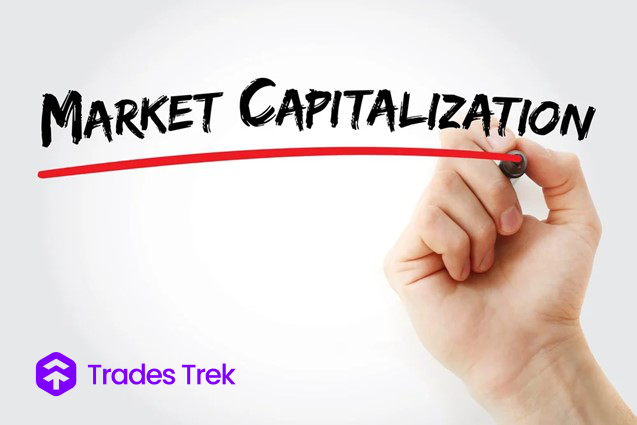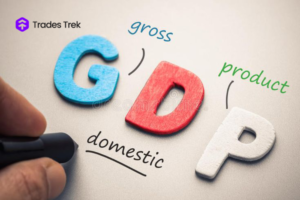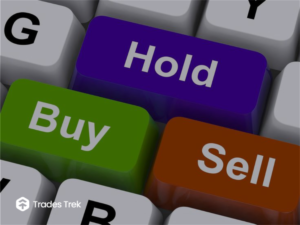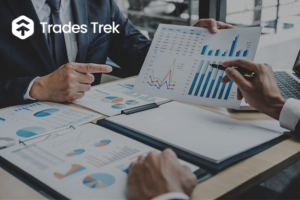Market capitalisation is often abbreviated as “market cap”
What is Market Capitalisation?
Market capitalisation represents the market value of a company’s outstanding shares of stock. In simpler terms, it is the worth of all outstanding shares of a company in the open market. Investors use the market cap of a company to determine its size. During company acquisition, market cap is used to determine if the company will be of good value to the acquirer.
Get access to the market cap of all stocks listed on the Nigerian Stock Market for free on the Trades Trek Application. Available for download on Android and IOS. Download today and get 500,000NGN in virtual cash to start trading on the stock market today!!!
How to Calculate Market Capitalisation
Calculating market capitalisation is a straightforward process. It is simply the product of the current market price of a company’s stock and the total number of outstanding shares. After a company goes public through an IPO, its share price is determined by its demand and supply on the market. As the price of a company stock moves either up or down, its market cap is seen as the real-time evaluation of the company’s value.
The formula for calculating market cap is:
Market Capitalisation = Market Price per Share X Total Number of Outstanding Shares
Difference between Market Capitalisation and Market Price
Market price refers to the current price at which a stock is trading on the market. On the other hand, market capitalisation takes into account not just the price of the stock, but also the total number of outstanding shares. In essence, market capitalisation gives a broader perspective of a company’s value compared to its stock price alone.
For example, a company with 2000 outstanding shares and a share price of N100 has a market capital of N200,000. And a second company with 50 outstanding shares and a share price of N1000 has a market capital of N50,000.
Difference between Market Capitalisation and Market Value
While market capitalisation and market value might seem synonymous, they represent different concepts. Market capitalisation specifically pertains to the total value of a company’s outstanding shares, as determined by the market. On the other hand, market value is a broader term that can refer to the perceived value of a company by investors, which might include factors beyond just the stock price, such as brand value, intellectual property, and future growth potential.
Is the Market Value the Same as the Current Price?
Market value and current price are closely related but not identical. Current price simply refers to the price at which a stock is currently trading on the market. Market value, however, encompasses a broader assessment of a company’s worth, taking into account various factors beyond just the stock price.
Why is Market Cap Important?
Market capitalisation plays a crucial role for investors for several reasons. Firstly, it provides a quick snapshot of the size and scale of a company. Larger market capitalisations generally indicate larger, and more established companies. While smaller market caps often signify smaller, potentially riskier companies. Additionally, market capitalisation is a key factor in determining a stock’s inclusion in market indices.
In conclusion, the concept of market capitalisation is essential for any investor looking to make informed decisions in the stock market and better navigate the complex world of stock valuation. So, the next time you evaluate a stock, remember to consider its market capitalisation alongside other pertinent factors to make sound investment decisions.
FREE STOCK-TRADING SIMULATOR
Get started trading in a virtual environment before risking real cash. Download the Trades Trek Stock-Trading Simulator available on Android and IOS and get 500,000NGN in virtual cash to get started today!!! Become an expert investor for free with no capital investment. And also get access to learning resources to enhance your trading knowledge.




